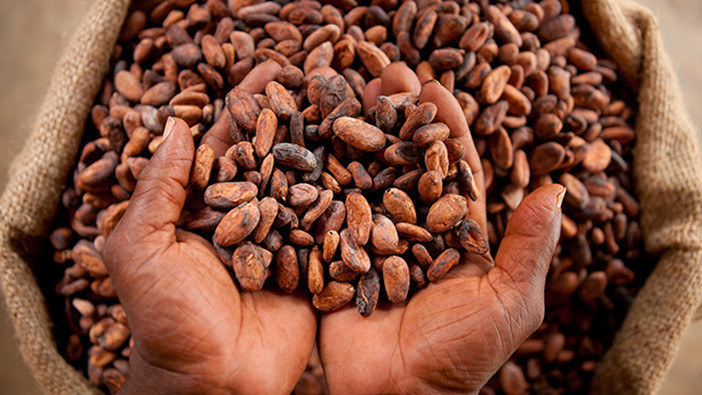The Fairtrade West Africa Cocoa Programme was launched in mid-2016 with an aim to strengthen Fairtrade cocoa co-operatives as membership organisations and business partners, leading to long-term trading relationships and, ultimately, living incomes for farmers. The inaugural report describes findings based on Fairtrade audit data, as well as co-operative management and farmer member surveys conducted in 2018 and 2019.
‘We are pleased to share this report, as part of our continued commitment to transparency both in terms of the efforts we are undertaking with this programme, as well as the results that farmers and co-operatives have reported so far,’ said Edward Akapire, Head of the West Africa region for Fairtrade Africa, which implements the programme. ‘The feedback the report provides is essential for us in seeing where co-operatives are getting stronger, and where we need to focus more attention, whether at the level of training, consultation, advocacy, and more.’
Key findings of the report include:
- Fairtrade cocoa co-operatives in Côte d’Ivoire that participated in the intensive sub-set sold both a higher volume of Fairtrade cocoa and had a higher percentage of sales on Fairtrade terms than other Fairtrade cocoa co-operatives. Fairtrade terms include the financial benefits of the Fairtrade Minimum Price when it is above market price, and the non-negotiable Fairtrade Premium on top of selling price.
- Co-operative managers reported a high level of knowledge in five key dimensions including good governance and management, and ensuring members adhere to Fairtrade Standards (with the aggregate score increasing from 88% in 2018 to 93% in 2019).
- 74% of co-operative farmer members reported that their co-operative had a good to excellent understanding of their priorities.
- Almost 9 out of 10 co-operatives report taking at least one action following trainings they received through the programme, such as rolling out a training for their own members, developing a strategic plan, or strengthening their management systems.
The report relates these findings to the premise of the West Africa Cocoa Programme: producer organisations that are stronger in the areas of management, participatory good governance, and the ability to respond to the needs of their farmer members are more resilient and better trading partners. This in turn expands their Fairtrade sales and enables farmers to progress toward earning a living income.
Several findings in the report also highlight areas of ongoing challenges, both for Fairtrade and for the cocoa sector as a whole, including the need to increase economic impact for farmers and to continue working towards expanding equality for women in co-operatives and in the community.
Fairtrade Africa is using such findings to improve the programme, by convening participants each year to share individualised reports, review results and chart the training focus for the coming year. Chocolate brands have also been part of the dialogue, receiving tailored reports on their own supply chains and having the opportunity to do a deep-dive into the data together with the co-operatives supplying their cocoa. A second annual in-person meeting in Abidjan planned for last month was postponed due to the COVID-19 pandemic. A mid-term evaluation of the programme is also underway.
‘The West Africa Cocoa Programme aims to enable stronger co-operatives, and also stronger trading partnerships, so everyone can work together toward shared goals,’ said Jon Walker, Fairtrade International’s Senior Advisor for Cocoa. ‘This report contains early detailed monitoring results, but we welcome other entities, from commercial partners to other NGOs, to build on these findings, or work with us to improve our collective impact for farmers.’
For more information, contact martine.parry@fairtrade.org.uk
About Fairtrade International
Fairtrade changes the way trade works through better prices, decent working conditions and a fairer deal for farmers and workers in developing countries.
Fairtrade International is an independent non-profit organisation representing 1.7 million small-scale farmers and workers worldwide. It owns the FAIRTRADE Mark, a registered trademark of Fairtrade that appears on more than 30,000 products. Beyond certification, Fairtrade International and its member organizations empower producers, partner with businesses, engage consumers and advocate for a fair and sustainable future. Find out more at Fairtrade International’s site.
About Fairtrade Africa
Fairtrade Africa, a member of the wider International Fairtrade movement represents Fairtrade certified producers in Africa and the Middle East. Fairtrade Africa is owned by its members, who are African producer organisations certified against international Fairtrade Standards producing traditional export commodities such as coffee, cocoa, tea, cotton, bananas, mango and non-traditional commodities including shea butter and rooibos tea. Currently, the organisation represents over 1,050,000 producers across 33 countries in Africa.
